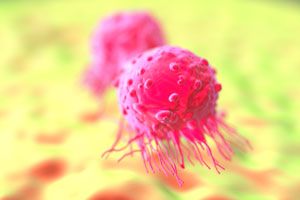Primary Immunization Series of GP2/GM-CSF Increases Peak Immunity in HER2-Positive Breast Cancer
Regardless of HER2 status, patients with human leukocyte antigen-A02, node-positive and high-risk node-negative breast cancer, had significant improvement in responses with a GP2 peptide vaccine plus GM-CSF compared with GM-CSF alone.

In patients with human leukocyte antigen (HLA)-A02, node-positive and high-risk node-negative breast cancer, immune responses were significantly improved with adjuvant GP2 peptide vaccine therapy in combination with granulocyte-macrophage colony-stimulating factor (GM-CSF), regardless of HER2 status compared with GM-CSF alone, according to 5-year follow-up results from a phase 2b study (NCT00524277).1
With the addition of the adjuvant GP2 peptide vaccine, a trend toward improved disease-free survival (DFS; P = .052) was demonstrated in the primary analysis of the prospective, randomized, placebo-controlled, single-blinded, multicenter study. The combination also appeared to be safe.2 For the 5-year follow-up analysis, 145 patients were evaluated. The primary end point was the determination of reductions in recurrence rate with GP2 plus GMCSF versus GM-CSF alone. The secondary end points were immune responses and their correlation with clinical outcomes as well as safety determined by the occurrence of unexpected toxicities. Immune responses were tested through delayed-type-hypersensitivity (DTH), and toxicities.1
In terms of immune responses, the results showed responses to be similar between patients with HER2 3+ disease and those with HER2 1-2+ disease, according to findings from 114 evaluable patients. With immune responses quantified using the Dimer Assay, the combination arm had a 100.0% peak immunity, and the GM-CSF alone arm had an 89.4% peak immunity. Investigators led by Snehal S. Patel noted that immune responses in the GP2/GM-CSF arm increased quickly over the course of the 6 vaccinations and maintained statistical significance more than 6 months after the primary immunization series (PIS) ended. The change in peak immunity from baseline was reflected by a P value of .05.
Following immune responses observed at the 6-month mark and above, a proportion of patients also received booster vaccinations at the 12-month mark, which were evaluated after 1 month. The analysis showed that in patients with HER2 3+ breast cancer treated with GP2 plus GM-CSF, GP2-specific cytotoxic T lymphocytes had a statistically significant increase compared with the baseline assessment.
About 48 to 72 hours following injection with treatment, the DTH orthogonal mean was calculated to further assess immune response. The assessment showed a significant increase in DTH reaction inpatients after receiving the GP2 PIS compared with what was observed at baseline. The DTH orthogonal mean was 0.0 mm at baseline versus 10.8 mm after PIS. Among patients who received GM-CSF, the DTH orthogonal mean remained 0.0 mm after PIS. Treatment with the GP2 PIS also showed a significantly higher number of DTH reactions compared with the placebo arm after treatment with a mean of 10.8 mm versus 0.0 mm (P = .009).
Notably, the robust responses occurred in both HER2-positive breast cancer populations irrespective of trastuzumab (Herceptin) treatment and levels of HER2 expression. These findings signaled that GP2 has potential as treatment of patients with breast cancer and low to intermediate HER2 expression as well as other HER2-positive tumors. Patel et al predict that in future studies, investigators will test the immunogenicity of GP2 by HLA type. Optimization of booster timing to sustain immune responses, clinical site performance, and stopping treatment with GP2 when patients do not respond.
References:
1. Patel SS, McWilliams DB, Patel MS, et al . Final five year median follow-up data from a prospective, randomized, placebo-controlled, single-blinded, multicenter, phase IIb study evaluating a time series of immune responses using HER2/neu peptide GP2 + GM-CSF vs. GM-CSF alone after adjuvant trastuzumab in HER2 positive women with operable breast cancer. Presented at: 2021 American Association for Cancer Research Annual Meeting; April 10-15, 2021; Virtual. Abstract CT183.
2. Brown TA, Mittendorf EA, Hale DF, et al. Prospective, randomized, single-blinded, multi-center phase II trial of two HER2 peptide vaccines, GP2 and AE37, in breast cancer patients to prevent recurrence. Breast Cancer Res Treat. 2020; 181: 391-40. doi: 10.1007/s10549-020-05638-x
Therapy Type and Site of Metastases Factor into HR+, HER2+ mBC Treatment
December 20th 2024During a Case-Based Roundtable® event, Ian Krop, MD, and participants discussed considerations affecting first- and second-line treatment of metastatic HER2-positive breast cancer in the first article of a 2-part series.
Read More
Real-World Data and AI Help Improve ILD Management in HER2+ Breast Cancer
December 13th 2024Project EVOLVE findings show how AI-driven real-world data analysis, combined with targeted educational interventions, can enhance adverse event monitoring and improve patient outcomes for those with HER2+ breast cancer.
Read More
FDA Grants Clearance for Phase 1 Trial of BL-M17D1 in Solid Tumors
November 11th 2024Following the clearance of an investigational new drug application from the FDA, a phase 1 trial will examine the novel antibody-drug conjugate BL-M17D1 in patients with advanced or metastatic solid tumors.
Read More
Study Reveals Encouraging Results in HER2+ Breast Cancer With Brain Mets
November 1st 2024Barbara O’Brien, MD, discussed findings and implications from the phase 2 TBCRC049 study evaluating the combination of tucatinib, trastuzumab, and capecitabine in HER2-positive breast cancer with leptomeningeal metastasis.
Read More